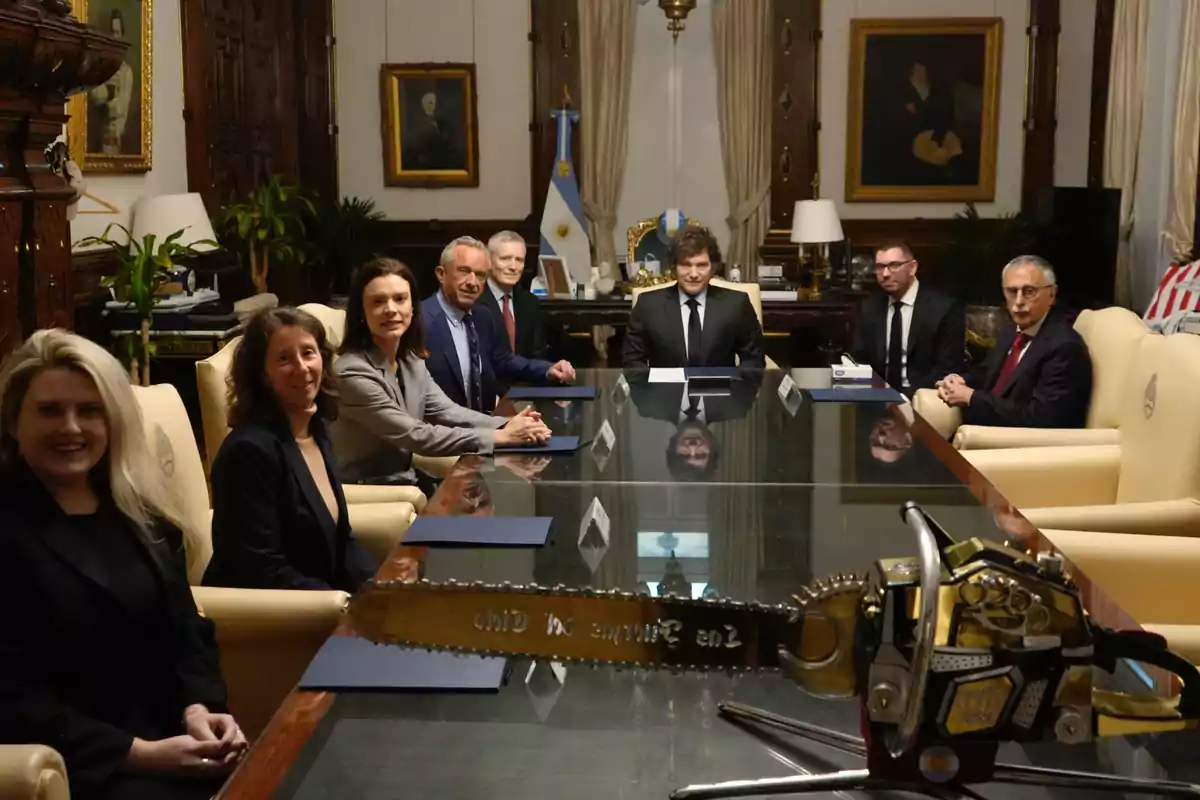
Weekly summary: announcements, operations, and positive signs for Milei's government
Economic progress, fight against drug trafficking, and reforms. Everything that happened this week
Salary increase at Garrahan: open conflict
The national government announced a 63.12% salary increase for resident doctors at Hospital Garrahan in response to union demands. However, the measure was rejected by the unions, which called for a general assembly on Tuesday in search of new definitions.
Improvement in social and economic indicators
A report by UNICEF recognized that 1,700,000 children have emerged from poverty since Javier Milei's administration began.
In addition, according to the EMAE prepared by Equilibra, the economy grew by 8% year-on-year in April, showing signs of sustained recovery.
In terms of inflation, INDEC reported 1.8% inflation in May, the lowest since March 2021. The year-on-year rate stands at 42.5%. The food sector registered a variation of just 0.4%.
Security: operations and new doctrine
The fight against drug trafficking and organized crime was another major focus this week. Among the main operations, the following stand out:
Detention of 12 members of Tren de Aragua, a dangerous transnational criminal organization.
In San Juan, a Bolivian passenger was arrested with 100 cocaine capsules hidden in a fanny pack.
In Santa Fe, simultaneous raids dismantled a family-run drug gang with six people arrested.
In Tucumán, four people were arrested for transporting 248 packages of cocaine hidden in the rear panels of a vehicle.
In Buenos Aires, a criminal network dedicated to online sexual exploitation with international connections was dismantled; 17 victims were rescued.
The Minister of Security, Patricia Bullrich, launched the Guaçurarí Plan, strengthening border controls with Brazil, especially in Misiones. The Interministerial Agreement of the Tripartite Command with Brazil and Paraguay was also updatedto cut off financial flows of criminal and terrorist organizations.
In addition, 471 seized weapons were handed over to the Federal Forces, which will now be used against crime. "Every weapon taken from crime is a weapon that goes against crime."
Changes in Military Service and access to rights
The government announced the modification of Voluntary Military Service, which will now provide comprehensive educational training for young people aged 18 to 28, including completion of mandatory studies and vocational training.
It was also established that parents may authorize their children's travel directly when processing the passport, simplifying a key procedure for many families.
State reforms and modernization
In a series of measures aimed at reducing bureaucracy and facilitating economic activity:
The public works registration system was modernized, with fewer procedures and greater transparency.
ANMAT was removed from the import process for cosmetic and personal hygiene products, allowing any citizen to import these products.
The first self-service gas stations began operating, a step toward modernizing the refueling system.
Registered mortgagesincreased by 461% in April, reflecting a rebound in the real estate sector.
Energy and strategic works with private investment
In terms of energy infrastructure:
The expansion of the Vaca Muerta Sur oil pipeline will move forward, extending 437 km (271.5 miles) to Punta Colorada (Río Negro). It will allow the transport of 550,000 barrels per day by 2027.
Works to expand the national electricity transmission system were defined as priorities, which will reduce power outages throughout the country.
Meanwhile, oil production in Vaca Muerta grew by 20% in April, consolidating its strategic role in the national energy matrix.
The government in the territory and in the world
The Human Capital Train began traveling across the country, providing medical care, studies, and access to procedures for thousands of citizens.
Finally, President Javier Mileiand his cabinet participated in the Tedeum for May 25 at the Buenos Aires Cathedral. In addition, the president received together with the Minister of Health, Mario Lugones, the U.S. Secretary of Health, Robert Kennedy Jr., at the Casa Rosada.
More posts: